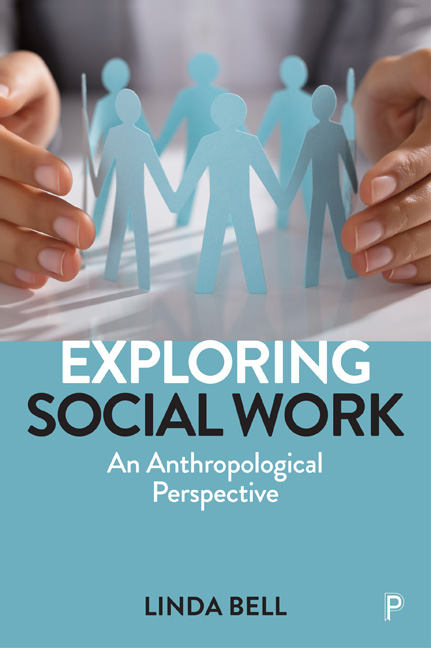Book contents
- Frontmatter
- Dedication
- Contents
- Acknowledgements
- Preface
- 1 Introducing Social Work: Who are Social Workers? Why do we Need Them?
- 2 Getting Involved: An Anthropological and Auto-Ethnographic Journey
- 3 Time and Change: UK Social Work and Comparative European Welfare Policies Since 1990
- 4 Becoming: Being Admitted, Educated and Trained in Social Work
- 5 Growing: Experiencing Social Work Education and Socialisation
- 6 Identifying
- 7 Valuing and Transgressing
- 8 Relating and Partnering: Social Workers, Clients/Service users and other Professionals
- 9 Knowing and Evidencing: Building a Research Base, Mapping and Modelling
- 10 Organising: Influences of the state, Organisations and Wider Social Policies
- 11 Symbolising: Cultural Representations in Theory and in Practice
- 12 Changing: The Future – Social Work in Wider Society
- References
- Index
10 - Organising: Influences of the state, Organisations and Wider Social Policies
Published online by Cambridge University Press: 04 March 2021
- Frontmatter
- Dedication
- Contents
- Acknowledgements
- Preface
- 1 Introducing Social Work: Who are Social Workers? Why do we Need Them?
- 2 Getting Involved: An Anthropological and Auto-Ethnographic Journey
- 3 Time and Change: UK Social Work and Comparative European Welfare Policies Since 1990
- 4 Becoming: Being Admitted, Educated and Trained in Social Work
- 5 Growing: Experiencing Social Work Education and Socialisation
- 6 Identifying
- 7 Valuing and Transgressing
- 8 Relating and Partnering: Social Workers, Clients/Service users and other Professionals
- 9 Knowing and Evidencing: Building a Research Base, Mapping and Modelling
- 10 Organising: Influences of the state, Organisations and Wider Social Policies
- 11 Symbolising: Cultural Representations in Theory and in Practice
- 12 Changing: The Future – Social Work in Wider Society
- References
- Index
Summary
Introduction
Organising social work falls into many different areas, and because social workers are employed in so many different kinds of organisation (statutory local authorities being only one kind) and different sectors (including health and education, as well as the social-care field), trying to analyse such forms of organisation directly in terms of employing organisations would be a mammoth task. A more fruitful approach seems to be to concentrate on a few areas, which will allow us to look backwards and forwards across our time frame of the 1990s to the present day, as well as on into the future, and also to consider social work both internationally and in the UK.
We have already considered some important areas of social work in previous chapters, so those I have chosen to examine here continue these themes: the development of professional organisation(s), research conferences (continuing from Chapter 9) and the further exploration of developments in social work/social care education. In the final sections of this chapter, I will give two specific English examples: the first links up social work/social care training, research and related workshops and conferences in the 1990s, in which I was involved; and the second explores how recent social work education has been organised via the UK government initiative of funded ‘Teaching partnerships’.
Professional organisation(s)
As we first noted in Chapter 2, debate continues internationally about the significance of social workers being agents of the state, and many of the social workers that I have interviewed imply that ‘real’ social work (whether in its caring or controlling aspects) is mainly about their relationships with those whom they serve. However, in Chapter 8, we also noted the view that social workers need to be able to make judgements about complex social and personal situations; from this viewpoint, they cannot act alone or merely consider themselves to be non-judgemental, but should be prepared to act responsibly, legally and in accordance with supervision from senior colleagues in order to achieve their goals. Chapter 7 also explored what can happen when social workers’ fitness to practise is questioned in the context of supervision and worker management.
The ways in which their profession is organised and recognised is thus important to social workers across Europe. Social work education is also an important factor.
- Type
- Chapter
- Information
- Exploring Social WorkAn Anthropological Perspective, pp. 139 - 156Publisher: Bristol University PressPrint publication year: 2020

